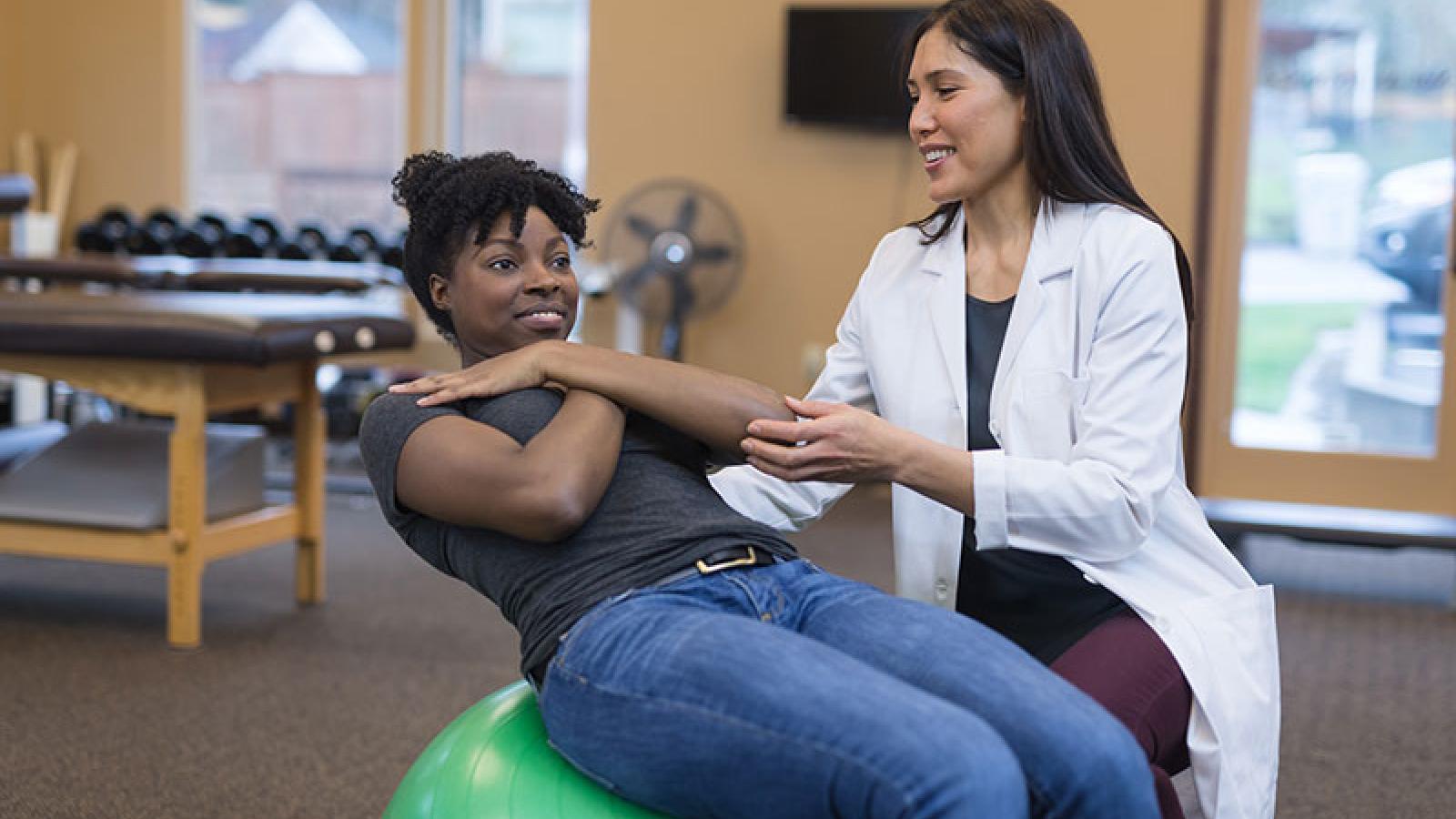Q&A with Pelvic Floor Therapists

|
Common pelvic health questions answered by experts from your local Guthrie Rehabilitation Services team. |



|
What is the pelvic floor?
The pelvic floor is a group of muscles located in the pelvis. These muscles help with bowel and bladder function, sexual function, providing organ support and stabilizing our trunk as we move. Like other muscles in the body, pelvic floor muscles can become weak, tight or have difficulty working together to support our bodies.
How do I know if I have pelvic floor dysfunction?
Common symptoms of pelvic, floor dysfunction can include:
- Leakage of urine or stool.
- Frequent or urgent trips to the bathroom.
- Waking up more than two times at night to urinate.
- Constipation.
- A feeling of heaviness and pressure in the pelvis.
- Pain with pelvic exams or intimacy.
- Pain in the lower abdomen or pelvis.
- Pain with sitting, tailbone pain, and/or hip and low back pain that does not improve with other treatments.
People often think these symptoms are a normal part of aging, but they are signs of pelvic floor dysfunction that can be treated.
What can I expect with pelvic health therapy?
Treatment of the pelvic floor often includes hands-on techniques to improve skin and connective tissue mobility, stretching, strengthening, and behavior modification strategies to restore function and improve quality of life. At your first appointment, a specialist will sit down with you in a private space and discuss your medical history and symptoms. We then complete a full assessment to evaluate strength, flexibility, and overall movement patterns.
An internal exam helps us gather valuable information about mthe pelvic floor, however, our treatment approach can be adjusted based on the patient’s comfort level. Our specialists have advanced training in both external and internal assessment of the pelvic floor.
Can I do kegels at home and avoid pelvic health therapy?
A: Kegel exercises are often recommended to strengthen the pelvic floor. For some conditions, kegels can be beneficial. However, other conditions can worsen with the wrong exercises, such as those caused by tight pelvic floor muscles resulting in pain, bladder or bowel leakage, and the feeling of urgency. We always recommend an assessment by a pelvic health therapist to determine which movements and treatment approach will be the best to address your symptoms.
Is pelvic health therapy just for women?
No! Everyone has pelvic muscles, can experience pelvic floor dysfunction, and can benefit from pelvic health therapy.
How do I schedule an appointment?
A referral to physical therapy is needed to schedule an appointment. Discuss your symptoms with your primary care provider, urologist or OB/GYN, and ask for a referral to Guthrie Rehabilitation for a pelvic floor assessment.

